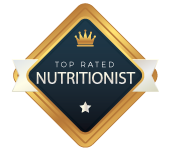Nutrients you have lost during alcohol and drug addiction need to be restored during recovery. A well-balanced diet along with a personalized addiction treatment plan can boost your energy, help you cope with drug cravings, and overcome addiction. Knowing the importance of nutrients for your physical and mental health during addiction recovery, ChoicePoint invited top-rated nutritionists to suggest superfoods that you should eat while recovering from alcohol or drug addiction.
Julie Germaine
Introduction
During addiction recovery, you have to refuel your body immediately with foods proven to initiate muscle regeneration. Likewise, what passes your lips must rehydrate you, infuse your immune system with nutrients, and increase your energy to avoid fatigue or mental exhaustion.
Let me help you learn what best you can eat to accomplish all these things! Here are three superfoods you can try during addiction recovery.
1. Isolate Protein Powder
This is a MUST! I actually would love to see you eating a good serving of protein with every meal and snack during the day, but it is essential after you start training at the gym after complete recovery from alcohol or drug addiction. At this stage, if you have lost weight recommend consuming 1 gram of protein each day for every pound of body weight. And I suggest having at least a ¼ of the day’s requirement during this meal, meaning over 25 g of protein.
2. Sweet Potatoes
There are many options when it comes to what types of carbohydrates to eat during addiction recovery and especially post-workout, but I love sweet potatoes for their flavor, vitamin, and fiber content. The correct carb to protein ratio to follow depends on your goals. A 3:1 (carb to protein) ratio is ideal for many exercisers; however, if you are cutting for fat loss, you would want to reduce your carbs, perhaps even match your protein intake.
3. Spinach
Absolutely a great choice at any time of the day! Cooked spinach contains 5 grams of protein per cup and essential electrolytes needed for muscle recovery (potassium and magnesium).
Enjoy and happy training!
Author Bio
Coach Julie Germaine is an NFLA-certified fitness expert, prenatal trainer, and NASM-certified nutrition specialist. She is also a fit mom to an active toddler and a 2x world-class fitness champion featured in and contributed to numerous fitness, fashion, lifestyle magazines, and other media. She has loved helping men and women lose belly fat and maintain their incredible body transformations as a virtual coach since 2005.
Sarah
Introduction
Sarah shares 3 super recipes from her blog to support overall health and wellbeing during addiction recovery.
Her recipes can help you avoid drug cravings and better cope with mood swings. Click on the link given below to read 3 recipes shared by Sarah for recovering people.
Amber Pankonin
Introduction
For those in rehab or recovering from addiction, it’s important to include a variety of foods from all the food groups in your diet. Consuming foods from all the food groups can provide essential nutrients needed for recovery and contribute to mental health.
Three foods that I would recommend would be:
- Blueberries
- Oatmeal
- Dairy products
Blueberries contain Vitamin C, an antioxidant that might help repair cells damaged by addiction. Oatmeal, enriched grains, and pork contain certain B vitamins like thiamin that might be depleted due to addiction. And alcohol is known to deplete minerals like calcium, so consuming three servings of dairy like milk, yogurt, or cheese can provide a good source of calcium and protein.
Author Bio
Sarah is a Registered Dietitian & Personal Chef. Visit her website to learn more about her.
Deepta Nagpal
Introduction
Individuals with substance use disorder often have poor nutritional status and lack healthy homeostasis. Nutrition plays a significant role in physical healing, recovery, and relapse. It is essential to eat clean, have a routine, limit caffeine, increase hydration, have balanced meals rich in antioxidants and anti-inflammatory foods.
Our choice about what we place in our mouths can directly affect our mental health. Studies have shown that specific vitamins and minerals in foods are capable of improving mental health, alleviating stress, anxiety, and depression. It is essential to choose foods rich in antioxidants that will support our immunity system because substance and alcohol abuse leads to a suppression of immunity levels.
1. Fatty Fish and Poultry
Tyrosine is an amino acid commonly deficient in patients suffering from substance and alcohol abuse disorder since the body stops producing it. Intake of Chicken and Turkey fulfill Tyrosine requirements. Fatty Fish like Sardines, Salmon, Tuna is rich in Omega 3 fatty acid, which helps to reduce anxiety.
2. Cacao
Cacao is rich in Magnesium, Manganese, Selenium, and Zinc. This helps to boost our serotonin levels. It also increases our Dopamine secretions. This directly boosts mood. One tablespoon of Cacao in a glass of dairy or plant-based milk every day is a strong recommendation for patients recovering from substance or alcohol abuse.
3. Nuts and Seeds
Walnuts, Chia seeds, Flax seeds are rich in Omega 3 fatty acids; this helps alleviate stress levels leading to better overall health. Nuts and Seeds also boost mood.
4. Green Leafy Veggies
Green leafy veggies are rich in Folic acid and Vitamin B, mood enhancers, and work against depression. In addition, these veggies provide enough antioxidants to boost immunity levels. They also help produce good gut microbiota, a crucial enabler for reducing anxiety levels.
5. Berries
Berries like Strawberries, Blueberries, Blackberries are rich in antioxidants helping our immunity levels. The potency of the antioxidants found in berries is high and provides excellent protection against inflammation. It is a great immunity booster.
6. Fermented Foods
Fermented Foods like Pickles, Yogurt, and Buttermilk provide good gut flora, which further helps to absorb nutrients better, improve immunity and hormonal function. It is essential during the recovery phase.
Avoid Sugar, Processed Foods, Packaged Foods, Food Colors, Refined Flour, Hydrogenated Oils.
Author Bio
Dt. Deepta Nagpal, Founder, and Chief Dietitian, Beyond Kilos and Inches. Visit her website to learn more about her.
HERE IS A BADGE TO PROUDLY SHOW OFF ON YOUR SITE!
To grab your badge, simply copy the code below and paste it on your site..

<a href="https://www.choicepointhealth.com/top-nutritionists-suggest-5-superfoods-to-eat-during-addiction-recovery/"><img src="https://www.choicepointhealth.com/wp-content/uploads/2021/12/CSM-3-badge.png" alt="Top Nutritionists Suggest 15 Superfoods to Eat During Addiction Recovery" /></a>
Medical Disclaimer:
ChoicePoint aims to improve the quality of life for people struggling with substance use disorder and mental health issues. Our team of licensed medical professionals research, edit and review the content before publishing. However, this information is not intended to be a substitute for professional medical advice, diagnosis, or treatment. For medical advice please consult your physicians or ChoicePoint's qualified staff.













Review Top Nutritionists Suggest 15 Superfoods to Eat During Addiction Recovery.